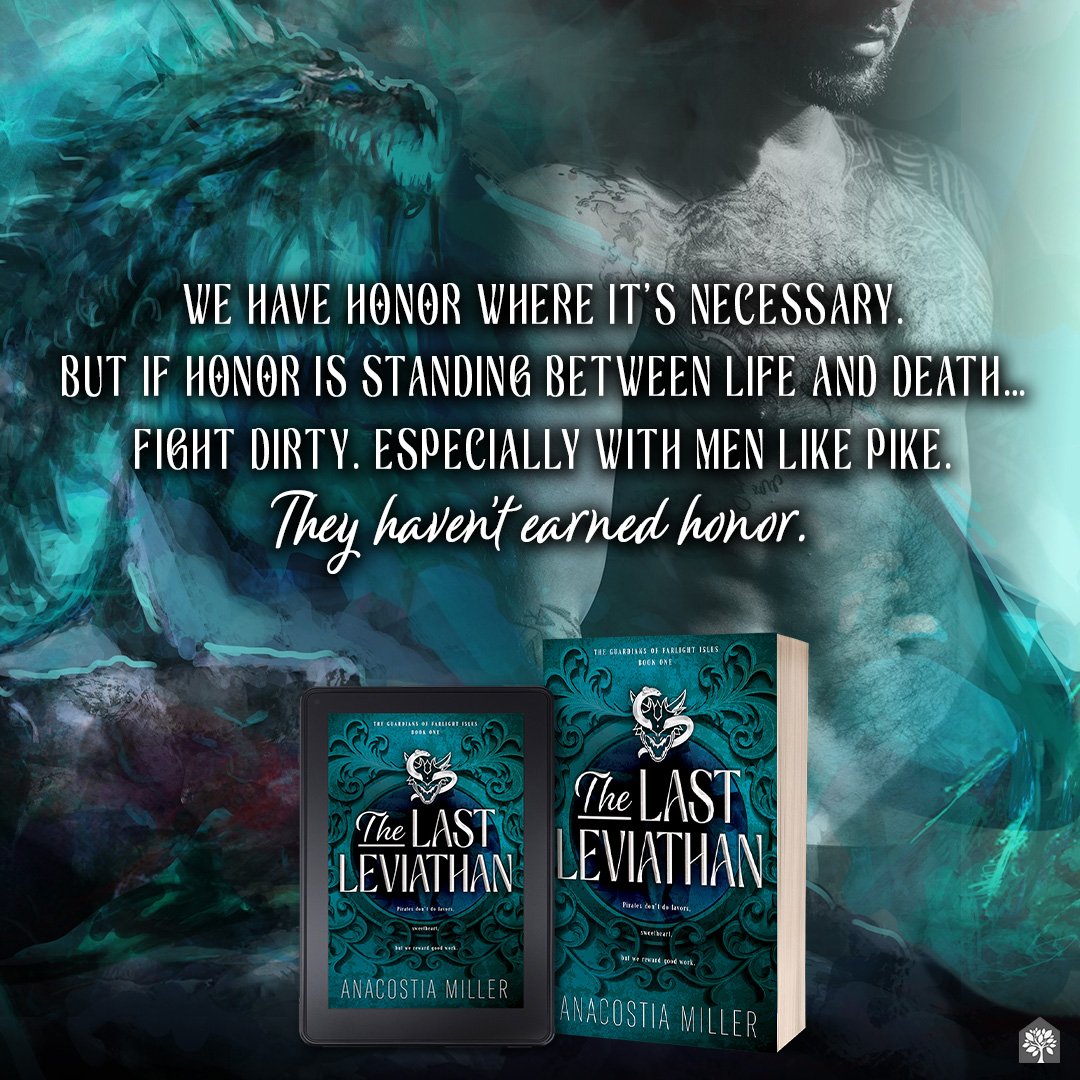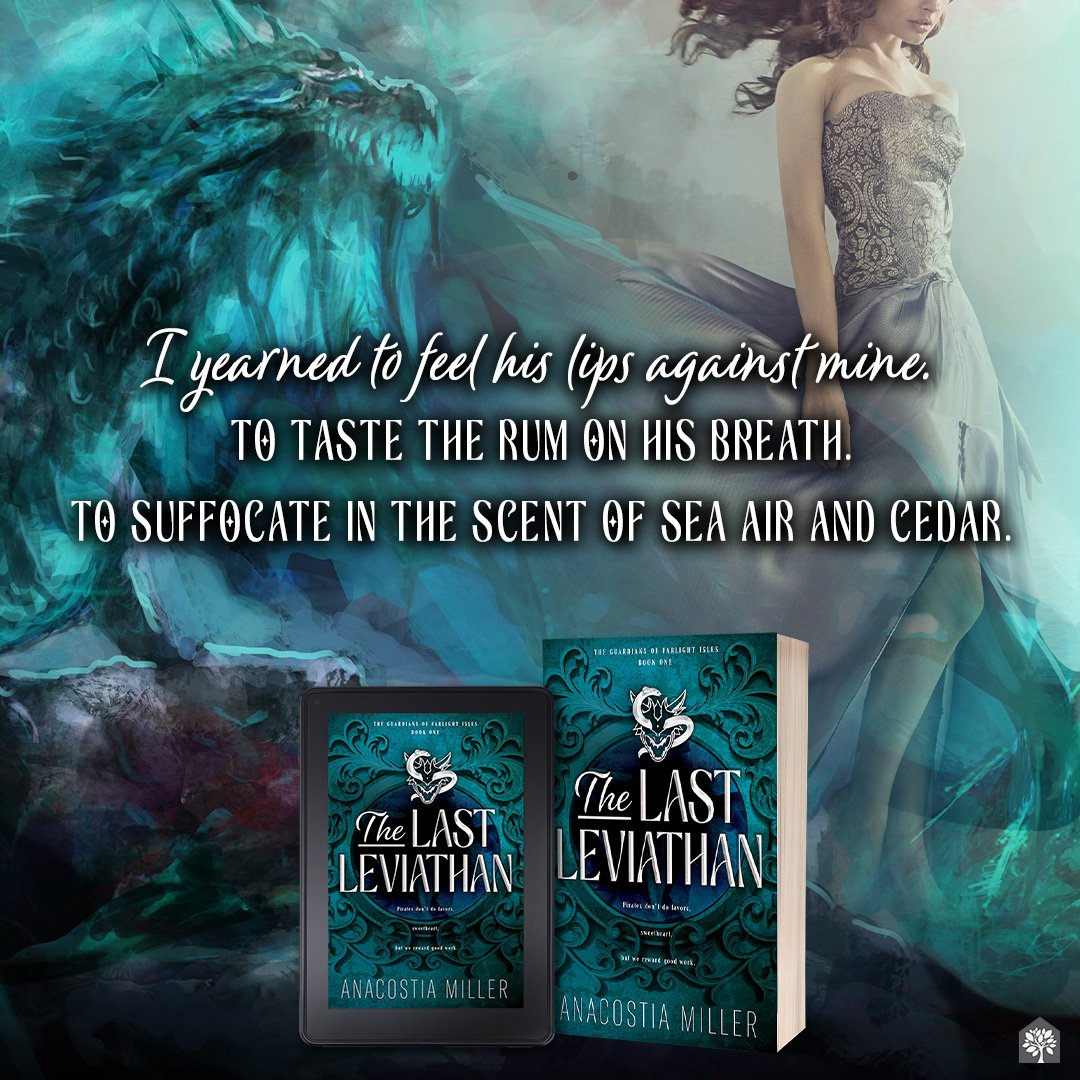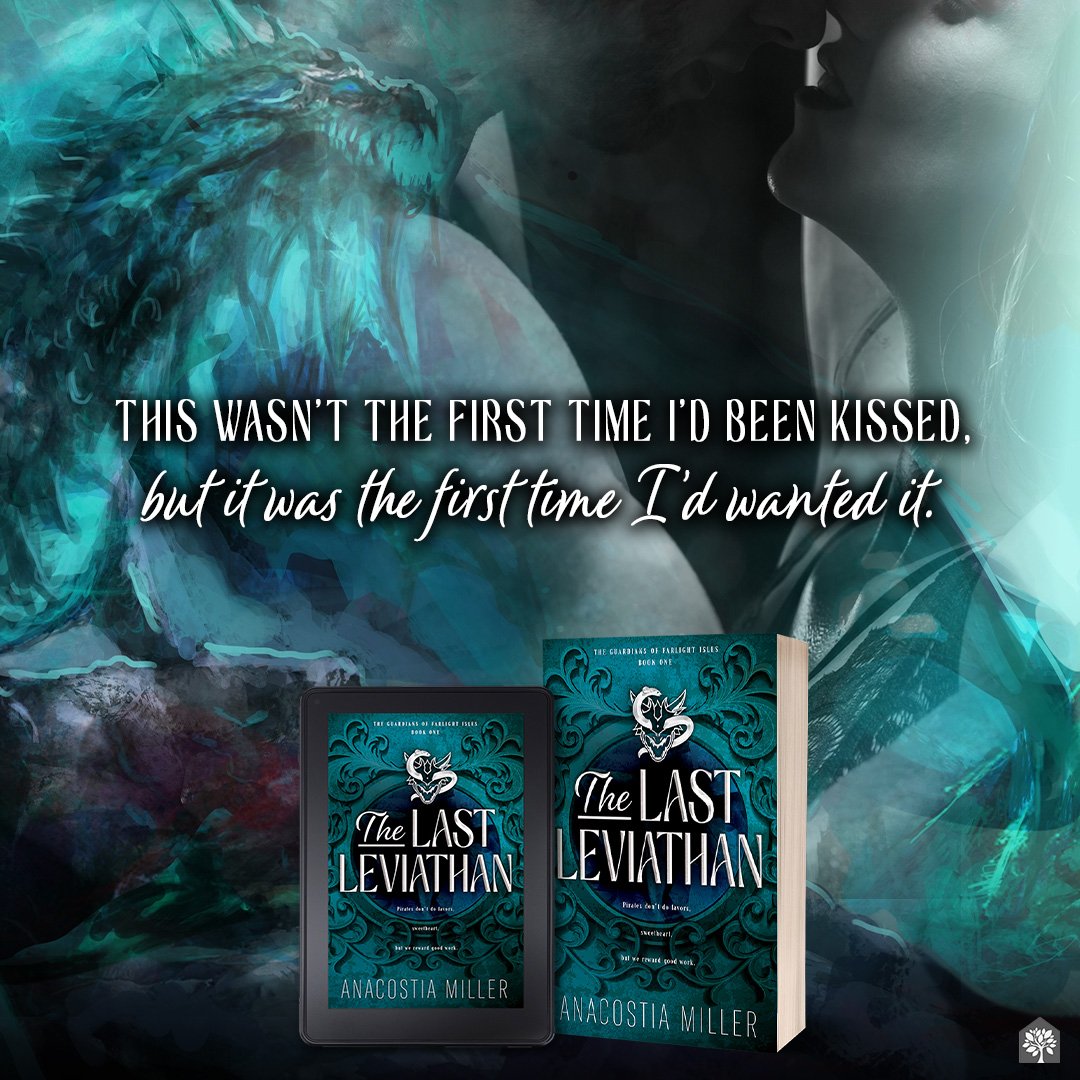An Interview with Anacostia Miller
1. What inspired you to blend romance and fantasy in this series?
This was originally supposed to be a more romance-heavy story, but as I developed it, the fantasy aspects became so interesting and only added layers of intricacy within the plot.
2. Can you provide an overview of the world-building and magic system within the series?
Farlight Isles is home to humans, fae, and elves. Fae is an umbrella term for all magic species including shapeshifters that naturally have magic in their blood. Like merrow and leviathan. Elves also have magic in their blood, but aside from that they are very similar to humans. Humans meanwhile are naturally ungifted, meaning they can learn magic, but it’s not natural to them like fae or elves.
Draconite is integral to the story and the magic system, because King Varric stole it from leviathans and used it to enhance his own magic to make him stronger. There are limits to the magic, because some can be physically strenuous or exhausting. Think weightlifting. You can’t do it forever, but some people can lift longer than others, but everyone has their limit.
But draconite allows Varric to bypass the natural limits, which is why he is so powerful.
3. What themes or messages are you exploring in this book?
In this book, I’m exploring themes of sexism and war. What freedom means to different people. This series is also about finding your people and how misfits make the best company.
I also explore power and the evils people will do for that power. That positions of power also entice those who shouldn’t have it.
4. How did you develop the main characters? Are they inspired by anyone in particular?
I was inspired by the idea of a dragon and a princess, but I also wanted to challenge that trope. A princess could be catty and snotty or very dedicated to their kingdom, but I didn’t want that for Maeve. She wants to understand others. She doesn’t want to be ignorant of the struggles of other people. That compassion and empathy make her a great character. But she also doesn’t want to be a princess. She craves adventure.
Meanwhile, Leviathan is actively running from his past. Maeve challenges him to face it. Dragons are known for their hoards, but Leviathan isn’t greedy. His hoard is the people he loves. His crew. He loves them so much that he’s viciously protective of them. So when Maeve wiggles her way into his hoard, it makes his job as a captain much more difficult.
Then, I needed to make the leads not only compatible but also make each other better.
Making them instantly attracted to each other felt too easy, so I thought, “What if I made them resistant to it?” Which led to a lot of fun banter.
I put a lot of myself into all my characters. Not always my best traits. Maeve is a great listener, but that doesn’t mean she knows how to communicate her feelings. Leviathan knows that he needs to take a step back if he’s being irrational, but that doesn’t mean that he does.
The dual perspective can make it really fun to explore those complex dualities. And considering that I’m autistic, it was also important to include some neurodivergent tendencies.
5. What challenges did you face while writing this book, especially considering the blend of romance and fantasy elements?
The hardest part of blending the genres was that tug-of-war. Should it be more fantasy or more romance? Not sacrificing one for the other. Because in The Last Leviathan, the romance is just as important to the growth of the characters as the world-building elements. But also having a plot so they can grow outside of each other.
I didn’t want to make the characters so reliant on each other that it was unhealthy, but more so that they have a safe place to go when the world gets out of hand.
6. Can you share a little about the central conflict or antagonist(s) in book one?
In book one, the central conflict revolves around Maeve escaping her life as a princess. She runs from her wedding when her husband shows his true colors as an abuser.
Most of the book is Maeve discovering the world with fresh eyes as she discovers who she is. She finds a family that accepts her. It doesn’t matter that they’re pirates.
However, there is something lurking in the shadows that forces Maeve to face who she’s running from, which is more than just her husband.
7. Are there any real-world influences or events that made their way into the story?
I was largely inspired by the 1700s Golden Age of Piracy. The massive ships and the trading routes. The constant headbutting between England and pirate ships. The safehold was inspired by Nassau and the community that protects their own.
8. What distinguishes your approach to romance in this fantastical setting from other works in the genre?
This piece is plot first, romance second. What makes it different is that the plot doesn’t necessarily hinge on the romance, even if it plays a huge part in their character development.
9. Lastly, what message would you like to convey to readers who are eagerly awaiting the release of your romantasy series?
The Last Leviathan is a story I wanted to see. I wanted to see inclusive characters, neurodivergent leads, and disabilities portrayed in a strong way. I wanted to see a romantic couple that made each other stronger while maintaining their autonomy.
And of course, I wanted pirates and dragons.
So, I wrote what I wanted to read and I hope readers feel the same way.
A princess turned stowaway. A pirate captain with old wounds. Together, they’re on the run from a kingdom built on a legacy of bones.
Anacostia Miller is a novelist and screenwriter with a background in filmmaking and prop creation. She has a long history of loving high fantasy books, but recently found her calling in romantasy. You can find her daydreaming plotlines or annoying her husband with movie breakdowns.





